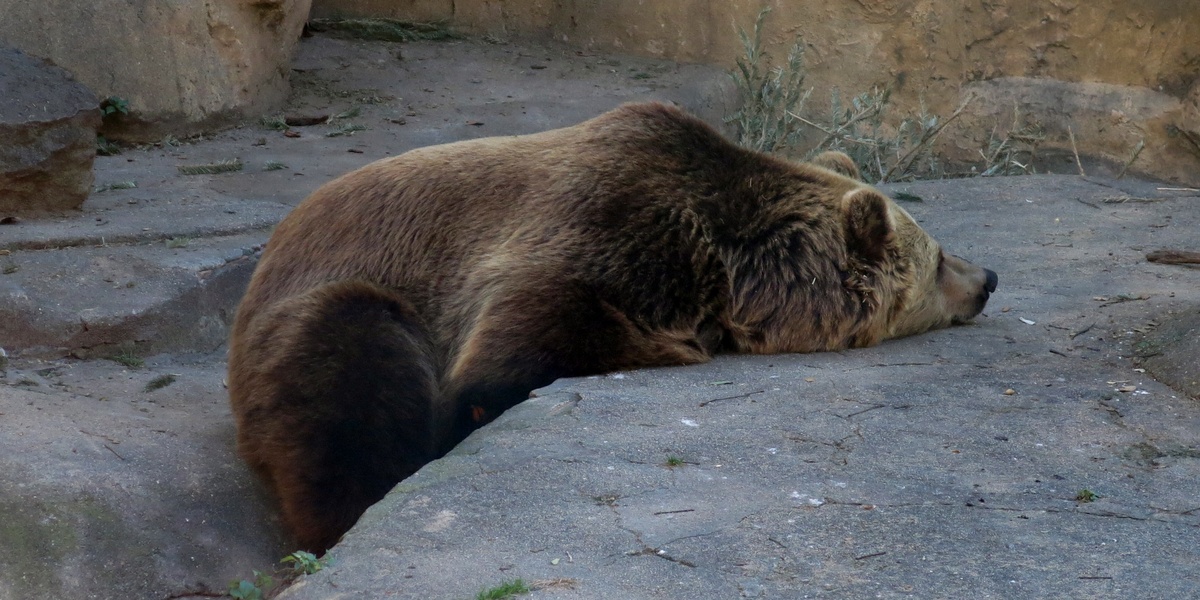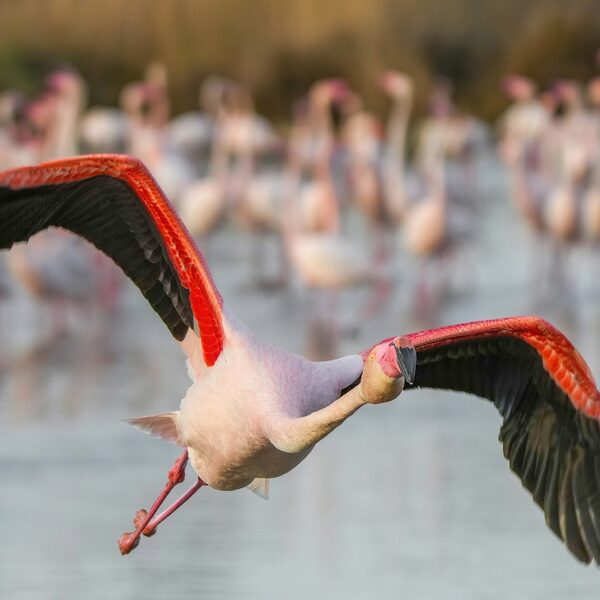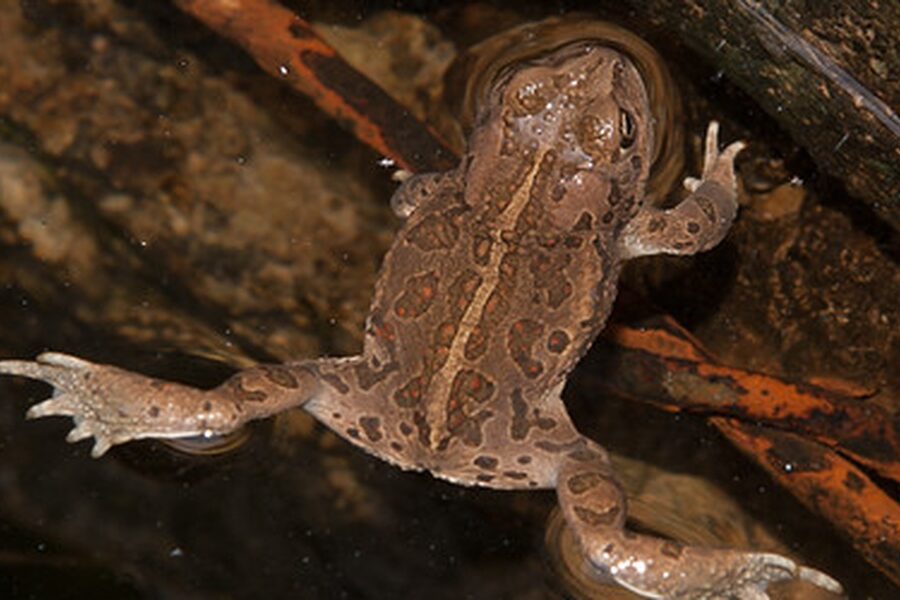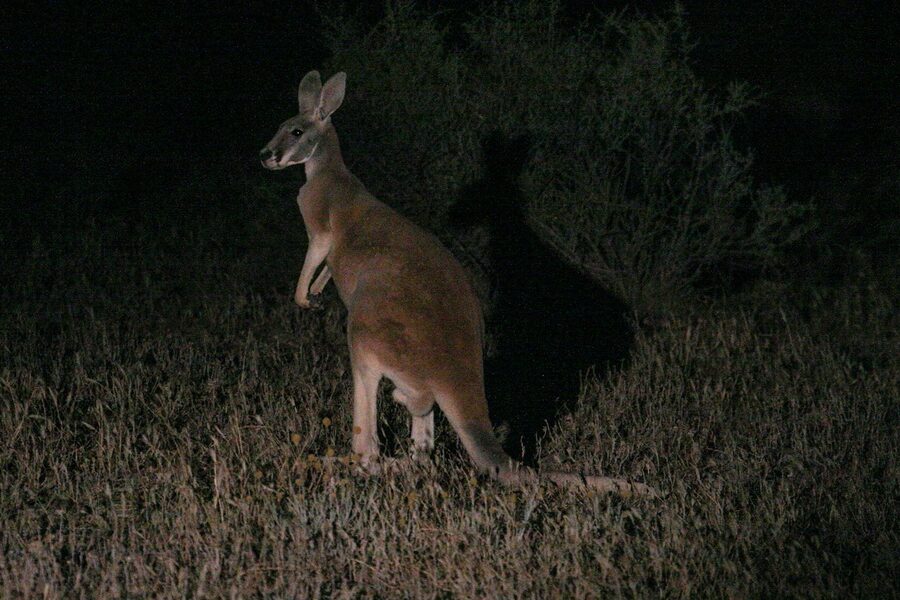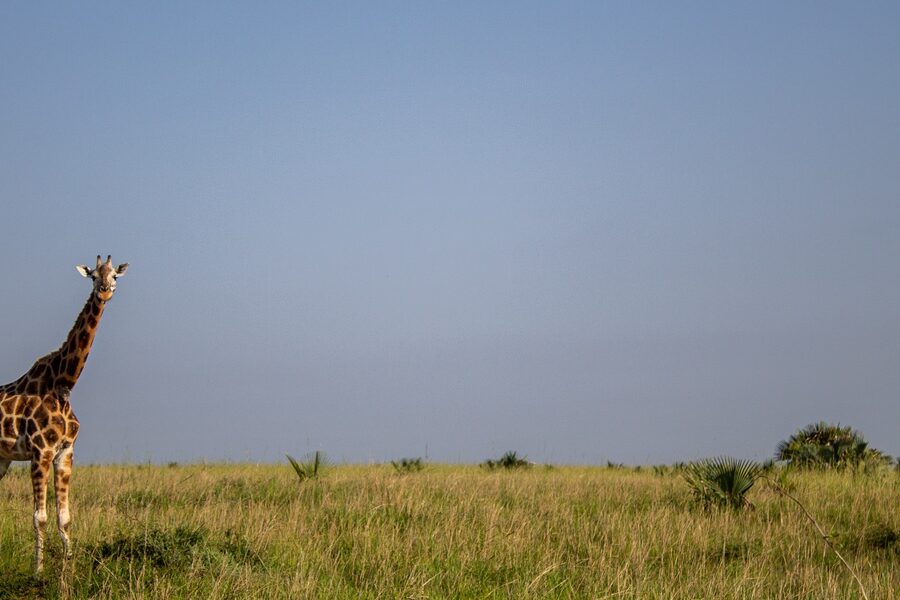Forests host a surprising mix of species, from tiny rodents scurrying through leaf litter to larger mammals that shape vegetation and predator-prey dynamics. Moving between tropical canopies and temperate understories, you’ll notice how climate, elevation and human activity change which animals thrive.
There are 50 forest mammals, ranging from African Forest Elephant to Tiger. For each species the list provides Scientific name,Range (countries/regions),Average weight (kg); you’ll find this information below.
How can I tell which of these mammals might appear near me?
Check the Range (countries/regions) column first to see recorded distributions, then use Average weight (kg) and common habitat notes to narrow possibilities—smaller mammals occupy underbrush while larger ones need more cover. Local field guides, camera-trap records, and community naturalist groups are useful for confirming sightings.
Where should I look for up-to-date conservation status for these species?
Use the Scientific name from the list to search the IUCN Red List and national conservation databases; those sources give threat levels, population trends and conservation actions. Local NGOs and government wildlife agencies often provide region-specific updates and recovery plans.
Forest Mammals
| Name | Scientific name | Range (countries/regions) | Average weight (kg) |
|---|---|---|---|
| Tiger | Panthera tigris | South and Southeast Asia, Russian Far East | 220 |
| Jaguar | Panthera onca | Central and South America, Amazon Basin, Mexico | 96 |
| Clouded Leopard | Neofelis nebulosa | Southeast Asia, Himalayan foothills, southern China | 11 |
| Margay | Leopardus wiedii | Mexico to Argentina, Central and South American forests | 4 |
| Ocelot | Leopardus pardalis | Central and South America, Mexico, parts of southern USA | 9 |
| Sun Bear | Helarctos malayanus | Southeast Asia (Malay Peninsula, Borneo, Sumatra, Thailand) | 50 |
| Giant Panda | Ailuropoda melanoleuca | Central China (Sichuan, Shaanxi, Gansu) | 100 |
| Red Panda | Ailurus fulgens | Eastern Himalayas and southwestern China | 5 |
| Bornean Orangutan | Pongo pygmaeus | Borneo (Malaysia, Indonesia) | 50 |
| Sumatran Orangutan | Pongo abelii | Northern Sumatra, Indonesia | 50 |
| Chimpanzee | Pan troglodytes | West and Central African forests (Guinea to Uganda) | 40 |
| Bonobo | Pan paniscus | Democratic Republic of Congo (central African rainforest) | 35 |
| Mountain Gorilla | Gorilla beringei | Virunga and Bwindi forests (Uganda, Rwanda, DRC) | 160 |
| African Forest Elephant | Loxodonta cyclotis | Central and West African rainforests (Congo Basin) | 2,700 |
| Lowland Tapir | Tapirus terrestris | Amazon and South American forests (Brazil, Peru, Colombia, Ecuador) | 250 |
| Tayra | Eira barbara | Mexico to Argentina, Neotropical forests | 7 |
| Kinkajou | Potos flavus | Mexico to Bolivia, Central and South American rainforests | 3 |
| Geoffroy’s Spider Monkey | Ateles geoffroyi | Mexico to Panama, Central American rainforests | 8 |
| Mantled Howler | Alouatta palliata | Central America to northern South America (forests) | 7 |
| Black-and-white Colobus | Colobus guereza | East and Central African forests | 12 |
| Eurasian Red Squirrel | Sciurus vulgaris | Europe and northern Asia (wooded habitats) | 0.25 |
| Northern Flying Squirrel | Glaucomys sabrinus | North American boreal and temperate forests (Canada, USA) | 0.18 |
| Southern Pudu | Pudu puda | Temperate forests of Chile and Argentina | 12 |
| Moose | Alces alces | North America and Eurasia (boreal and temperate forests) | 360 |
| Sumatran Rhinoceros | Dicerorhinus sumatrensis | Sumatra and Borneo (Indonesia, Malaysia) | 800 |
| Spectacled Bear | Tremarctos ornatus | Andean cloud forests (Venezuela to Bolivia) | 120 |
| Sunda Pangolin | Manis javanica | Southeast Asia (Thailand, Malaysia, Indonesia, Vietnam) | 7 |
| European Pine Marten | Martes martes | Europe and western Asia (mature forests) | 1.5 |
| Fisher | Pekania pennanti | North American boreal and temperate forests (Canada, USA) | 6 |
| Binturong | Arctictis binturong | South and Southeast Asian forests (India to Borneo) | 12 |
| African Golden Cat | Caracal aurata | West and Central African rainforests (Congo Basin) | 13 |
| Bornean Bay Cat | Catopuma badia | Endemic to Borneo’s lowland and montane forests | 4.5 |
| Indri | Indri indri | Eastern Madagascar rainforests | 9 |
| Aye-aye | Daubentonia madagascariensis | Madagascar (rainforests and coastal forests) | 3 |
| Indian Giant Squirrel | Ratufa indica | India (Western Ghats and central forests) | 1.8 |
| Lar Gibbon | Hylobates lar | Southeast Asia (Thailand, Malaysia, Indonesia) | 7 |
| Pygmy Slow Loris | Nycticebus pygmaeus | Vietnam, Laos, Cambodia forests (Southeast Asia) | 0.6 |
| Philippine Tarsier | Carlito syrichta | Philippines (Bohol, Leyte, Samar) | 0.12 |
| Dhole | Cuon alpinus | South and Southeast Asian forests | 20 |
| Red Brocket Deer | Mazama americana | Central and South American forests | 24 |
| Asian Elephant | Elephas maximus | South and Southeast Asia (India to Indonesia) | 4,000 |
| Baird’s Tapir | Tapirus bairdii | Central American forests (Mexico to Panama) | 250 |
| Black-and-white Ruffed Lemur | Varecia variegata | Eastern Madagascar rainforests | 3.5 |
| Brown-throated Sloth | Bradypus variegatus | Central and South American rainforests | 4 |
| Eurasian Lynx | Lynx lynx | Europe and Asia (boreal and temperate forests) | 18 |
| Red-shanked Douc | Pygathrix nemaeus | Vietnam and Laos rainforests (Southeast Asia) | 9 |
| Malayan Tapir | Tapirus indicus | Malay Peninsula and Sumatra (Southeast Asian forests) | 250 |
| Pygmy Hippopotamus | Choeropsis liberiensis | West African riverine and swamp forests (Liberia, Sierra Leone, Guinea) | 180 |
| Saola | Pseudoryx nghetinhensis | Annamite Range (Vietnam and Laos) | 100 |
| Sika Deer | Cervus nippon | East Asia forests (Japan, China, Korea) | 70 |
Images and Descriptions

Tiger
Large apex predator native to forested habitats, hunting deer and wild boar. Adults weigh about 220 kg. Solitary, territorial cats use dense cover for stalking. Many subspecies are endangered due to habitat loss and poaching.

Jaguar
Stocky forest and wetland big cat, preying on mammals, reptiles, and fish. Adults weigh about 96 kg. Powerful bite punctures skulls; often kills in trees or water. Populations threatened by deforestation and conflict with humans.
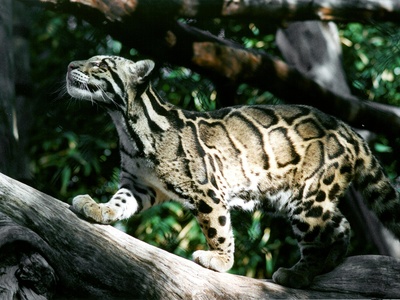
Clouded Leopard
Arboreal medium-sized felid adapted to dense tropical forests, feeding on birds and mammals. Adults weigh about 11 kg. Exceptionally long canine teeth and superb climbing ability; threatened by habitat loss and illegal trade.
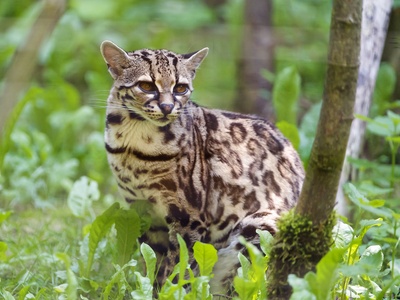
Margay
Small, nocturnal, arboreal wild cat native to dense Neotropical forests; preys on birds, small mammals and reptiles. Adults weigh about 4 kg. Exceptional climber can descend trees headfirst; vulnerable to deforestation and pet trade.
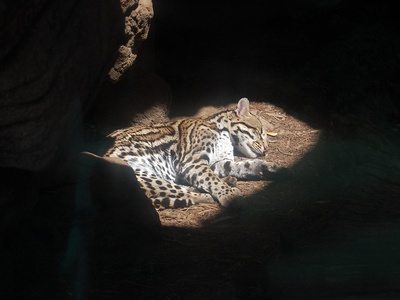
Ocelot
Medium-sized nocturnal cat of tropical and subtropical forests, preying on rodents, birds, and reptiles. Adults weigh about 9 kg. Solitary and secretive; populations decline due to habitat fragmentation and hunting for fur.
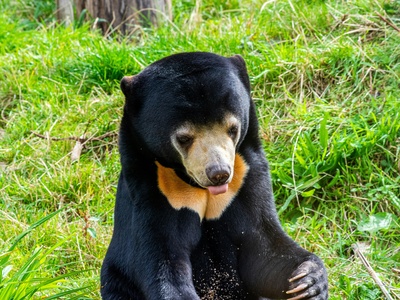
Sun Bear
Smallest bear species of tropical rainforests, feeding on fruit, insects, honey, and small vertebrates. Adults weigh about 50 kg. Notable long tongue for extracting insects; highly threatened by deforestation and poaching.
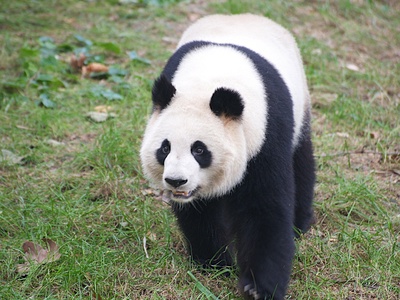
Giant Panda
Specialist of temperate bamboo forests, feeding almost exclusively on bamboo despite bear-like physiology. Adults weigh about 100 kg. Solitary and largely sedentary; conservation success via protected reserves but remains vulnerable.
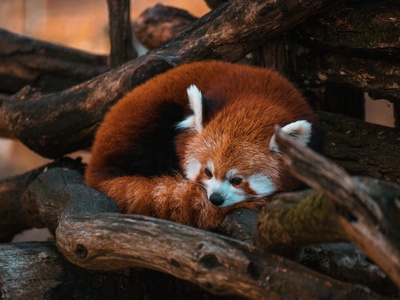
Red Panda
Small arboreal mammal of temperate bamboo forests, feeding on bamboo, fruits, and insects. Adults weigh about 5 kg. Strong climbing adaptations and solitary behavior; vulnerable due to ongoing habitat fragmentation.
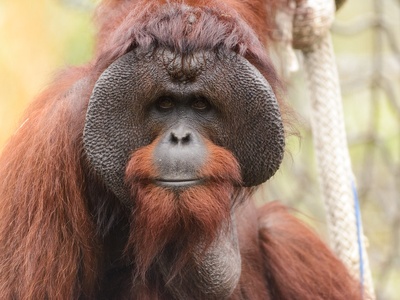
Bornean Orangutan
Large arboreal ape of lowland and montane rainforests, feeding on fruit, leaves, and insects. Adults weigh about 50 kg. Highly intelligent, build sleeping nests; critically endangered from logging and palm oil expansion.
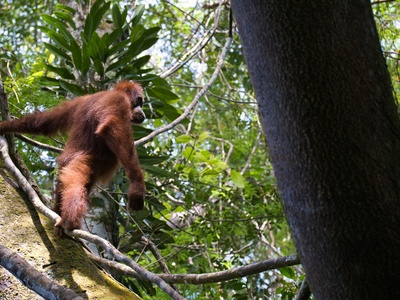
Sumatran Orangutan
Tree-dwelling great ape of Sumatran rainforests, eating fruit, leaves, and insects. Adults weigh about 50 kg. Socially flexible and skilled tool users; critically endangered due to ongoing deforestation and hunting.

Chimpanzee
Highly social primate of tropical forests, omnivorous—fruits, leaves, insects, meat. Adults weigh about 40 kg. Uses tools and complex social behaviors; populations decline from widespread habitat loss and bushmeat hunting.

Bonobo
Forest-dwelling great ape of Congo Basin, mainly frugivorous with social bonds maintained by peaceful interactions. Adults weigh about 35 kg. Live in dense rainforests; vulnerable due to logging, hunting, and civil unrest.
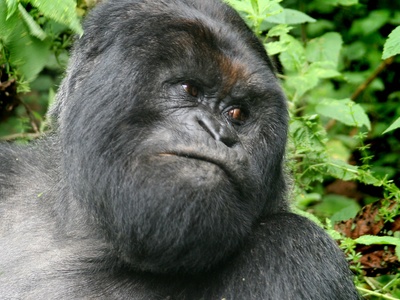
Mountain Gorilla
Massive forest gorilla inhabiting montane and bamboo forests, mostly herbivorous—leaves, shoots, fruit. Adult males weigh about 160 kg. Live in stable groups led by silverbacks; conservation success from tourism and protection but still endangered.
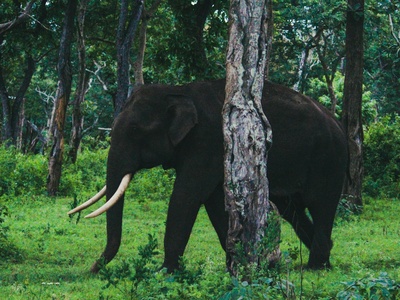
African Forest Elephant
Smaller, forest-adapted African elephant feeding on fruit, bark, and vegetation throughout dense rainforests. Adults weigh about 2,700 kg. Important seed dispersers shaping forest composition; critically endangered from heavy poaching and habitat loss.
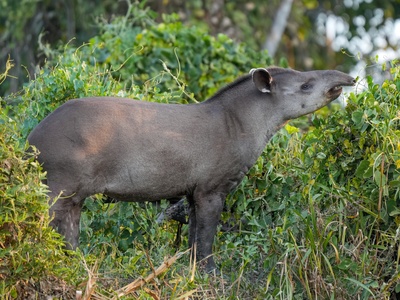
Lowland Tapir
Large browsing mammal of neotropical forests, feeding on leaves, fruits, and aquatic plants. Adults weigh about 250 kg. Excellent swimmers that disperse seeds; vulnerable from deforestation and local hunting pressure.
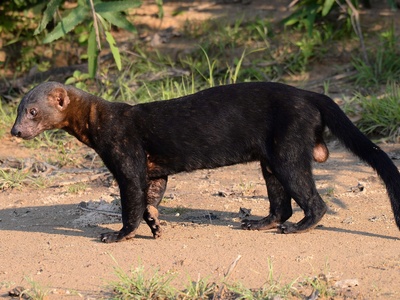
Tayra
Diurnal mustelid inhabiting tropical and subtropical forests, feeding on fruits, rodents, and small vertebrates. Adults weigh about 7 kg. Agile climber and opportunistic omnivore; threatened by ongoing habitat fragmentation and loss.
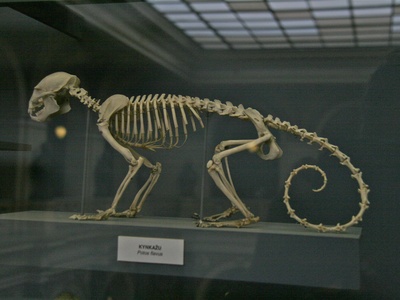
Kinkajou
Nocturnal, arboreal procyonid of tropical forests, feeding on fruit, nectar, and insects. Adults weigh about 3 kg. Prehensile tail aids movement; vulnerable to deforestation, local hunting, and capture for pet trade.
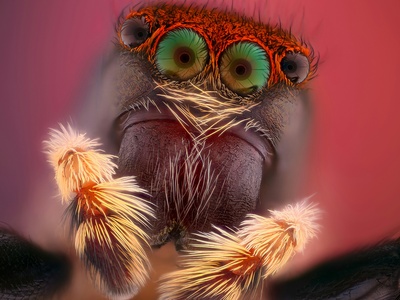
Geoffroy’s Spider Monkey
Large arboreal primate of Central American rainforests, frugivorous with some leaves and insects. Adults weigh about 8 kg. Highly acrobatic brachiators with long limbs and prehensile tail; threatened by habitat loss and hunting.
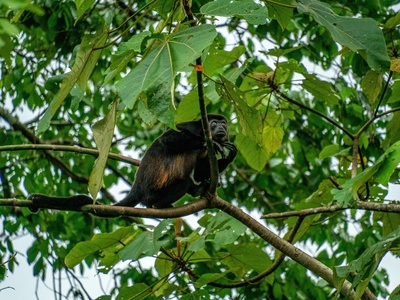
Mantled Howler
Large-bodied arboreal primate of Neotropical forests, mainly folivorous and frugivorous. Adults weigh about 7 kg. Famous for loud long-distance calls used for territory; vulnerable to habitat fragmentation and hunting pressure.
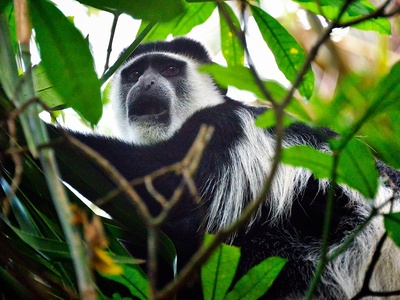
Black-and-white Colobus
Arboreal folivorous monkey of African forests, feeding mainly on leaves and some fruit. Adults weigh about 12 kg. Move in troops with long tails aiding balance; threatened by habitat loss and hunting.
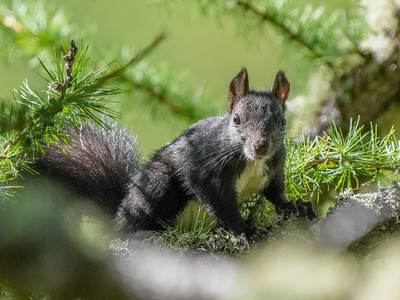
Eurasian Red Squirrel
Small arboreal rodent of temperate and boreal forests feeding on seeds, nuts, and fungi. Adults weigh about 0.25 kg. Stores food and caches seeds, important for forest regeneration; threatened locally by habitat loss and invasive species.
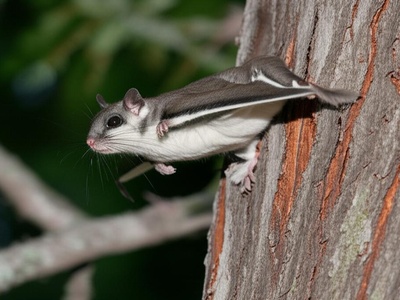
Northern Flying Squirrel
Nocturnal gliding rodent of coniferous and mixed forests, feeding on fungi, lichens, and nuts. Adults weigh about 0.18 kg. Glides between trees using patagium; relies on old-growth habitat and sensitive to logging.
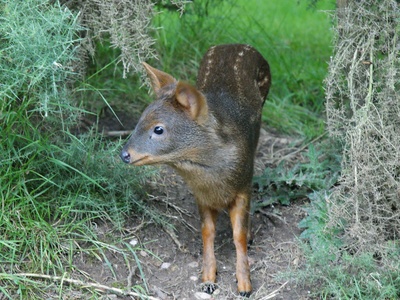
Southern Pudu
Tiny deer inhabiting dense temperate forests, browsing leaves, shoots, and fruits. Adults weigh about 12 kg. Secretive and solitary, they use understory cover; vulnerable from habitat loss and introduced predators.

Moose
Largest deer of boreal and mixed forests, feeding on aquatic plants, shrubs, and leaves. Adults weigh about 360 kg. Solitary browsers that shape wetland vegetation; vulnerable locally to habitat changes and hunting.
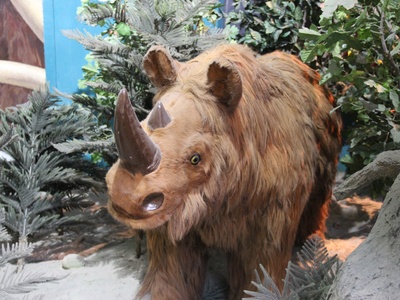
Sumatran Rhinoceros
Small, hairy rhinoceros of tropical rainforests, browsing leaves, shoots, and fruit. Adults weigh about 800 kg. Solitary and secretive, important seed dispersers; critically endangered with very small fragmented remaining populations.
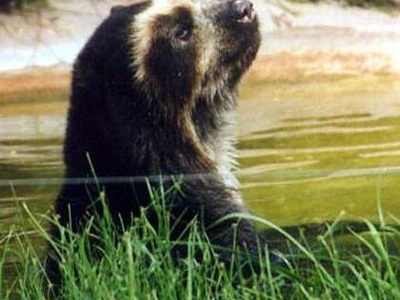
Spectacled Bear
Only South American bear inhabiting Andean cloud and montane forests, feeding on fruit, bromeliads, and occasional small animals. Adults weigh about 120 kg. Solitary and arboreal feeders; threatened by habitat loss and poaching.
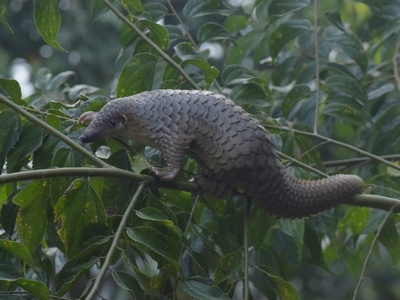
Sunda Pangolin
Nocturnal, insectivorous scaled mammal of tropical forests, feeding mainly on ants and termites. Adults weigh about 7 kg. Solitary and heavily trafficked for scales and meat; critically endangered across much of its range.
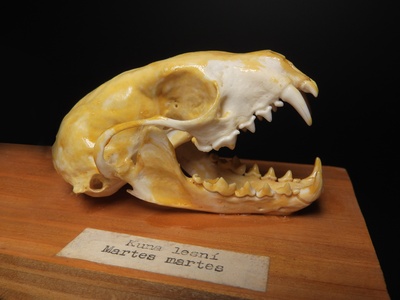
European Pine Marten
Arboreal mustelid of mature temperate forests, feeding on small mammals, birds, fruits, and carrion. Adults weigh about 1.5 kg. Skilled climber and omnivore; benefits from woodland connectivity but declines with deforestation.

Fisher
Forest-dwelling mustelid of North American coniferous and mixed forests, preying on small mammals, birds, and porcupines. Adults weigh about 6 kg. Excellent climber and predator; populations were historically reduced by trapping and logging.
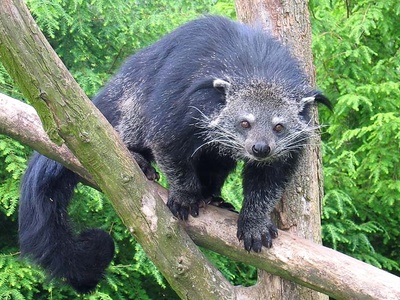
Binturong
Large, arboreal viverrid of tropical forests, omnivorous—fruit, small animals, and leaves. Adults weigh about 12 kg. Distinct popcorn-like scent from scent glands; seeds disperser but threatened by habitat loss and hunting.
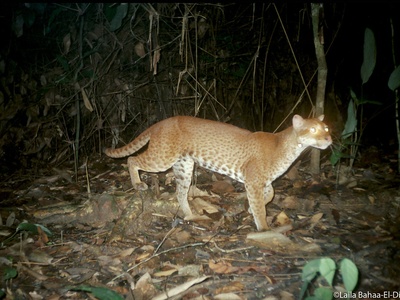
African Golden Cat
Elusive forest cat of African rainforests, hunting rodents, birds, and small ungulates. Adults weigh about 13 kg. Highly terrestrial but uses dense understory; threatened by habitat loss and bushmeat hunting.
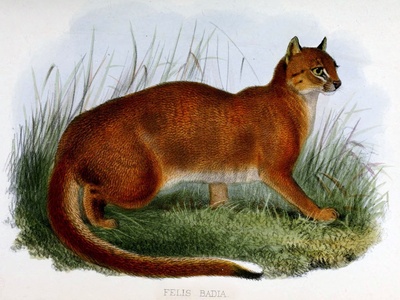
Bornean Bay Cat
Rare, small felid endemic to Borneo’s lowland and montane rainforests, preying on small mammals and birds. Adults weigh about 4.5 kg. Secretive and poorly known; threatened by rapid deforestation on Borneo.
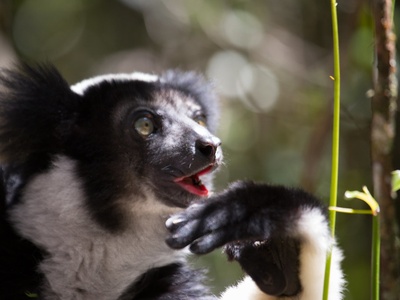
Indri
Large lemur of Madagascar’s eastern rainforests, mainly folivorous and frugivorous. Adults weigh about 9 kg. Noted for loud, haunting calls and vertical clinging-leaping locomotion; highly endangered from ongoing habitat loss.
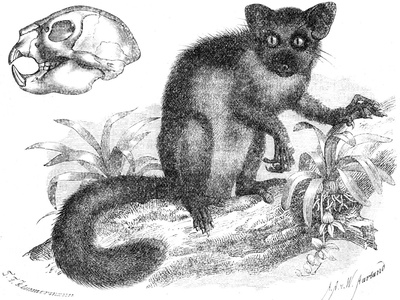
Aye-aye
Nocturnal, insectivorous lemur of Madagascar’s forests, probing wood for larvae with elongated middle finger. Adults weigh about 3 kg. Unique foraging method and appearance; culturally persecuted and threatened by deforestation.
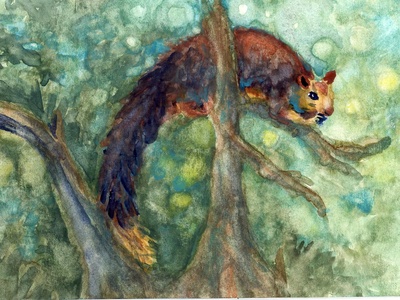
Indian Giant Squirrel
Large arboreal squirrel of Indian evergreen and deciduous forests, feeding on fruits, nuts, and flowers. Adults weigh about 1.8 kg. Builds leaf nests and leaps between canopy; threatened by habitat fragmentation.
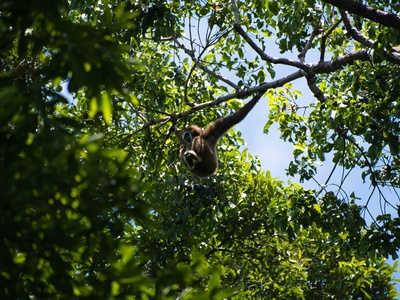
Lar Gibbon
Small apes of tropical forests, primarily frugivorous with some leaves and insects. Adults weigh about 7 kg. Specialized brachiators with long arms and loud vocal duets; many species endangered by logging and hunting.
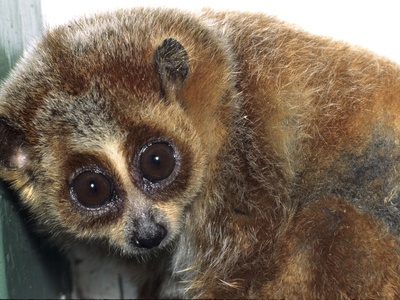
Pygmy Slow Loris
Nocturnal primate of Southeast Asian forests, eating insects, gum, and fruit. Adults weigh about 0.6 kg. Slow-moving with toxic bite for defense; threatened by illegal pet trade and habitat loss.
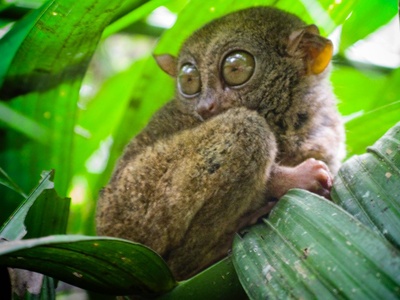
Philippine Tarsier
Tiny nocturnal primate of Philippine forests, insectivorous and faunivorous. Adults weigh about 0.12 kg. Enormous eyes for nocturnal hunting and powerful leaping; threatened by deforestation and local and illegal pet trade.
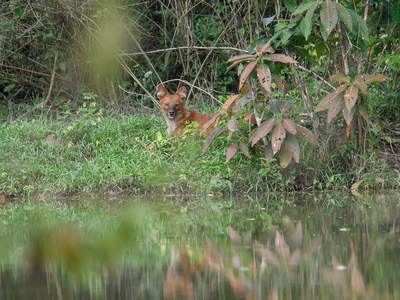
Dhole
Social forest canid hunting cooperatively for deer and wild pigs in tropical and temperate woodlands. Adults weigh about 20 kg. Packs exhibit sophisticated coordinated hunting; endangered from habitat loss, persecution, and disease.
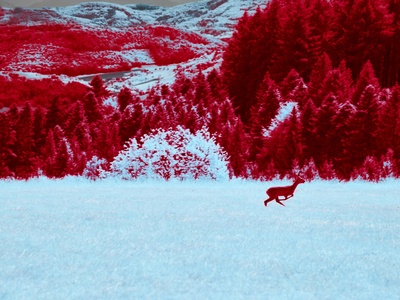
Red Brocket Deer
Small to medium forest deer browsing on leaves, fruit, and twigs in Neotropical understories. Adults weigh about 24 kg. Solitary and secretive, key seed dispersers; threatened by hunting and habitat fragmentation.
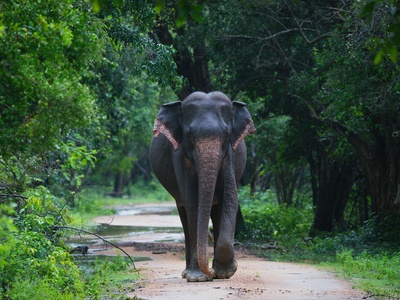
Asian Elephant
Large herbivore of tropical forests and woodland, feeding on grasses, leaves, bark and fruit. Adults weigh about 4,000 kg. Strong ecosystem engineers creating clearings and dispersing seeds; critically endangered from habitat loss and poaching.
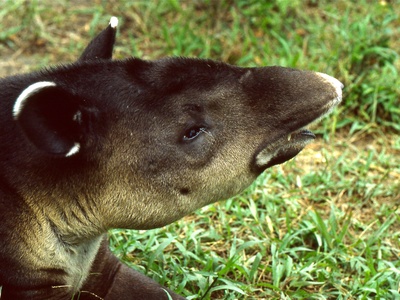
Baird’s Tapir
Large browsing mammal of Central American rainforests, feeding on leaves, fruits, and aquatic plants. Adults weigh about 250 kg. Nocturnal and solitary seed disperser; endangered from hunting and habitat destruction.
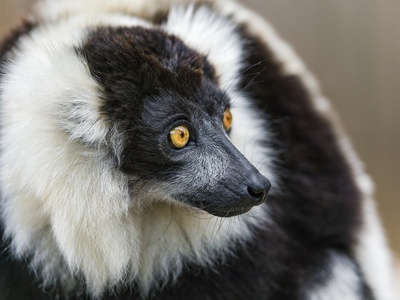
Black-and-white Ruffed Lemur
Large, frugivorous lemur of Madagascar’s rainforests, feeding mainly on fruit and nectar. Adults weigh about 3.5 kg. Important long-distance seed disperser and noisy canopy dweller; critically endangered from logging and cyclones.
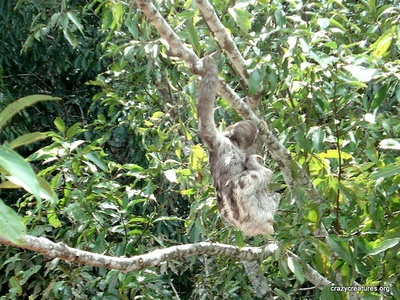
Brown-throated Sloth
Slow-moving arboreal mammal of tropical forests, feeding on leaves and some fruit. Adults weigh about 4 kg. Lives in canopy, rarely descending; specialized digestion and low metabolism, vulnerable to deforestation.
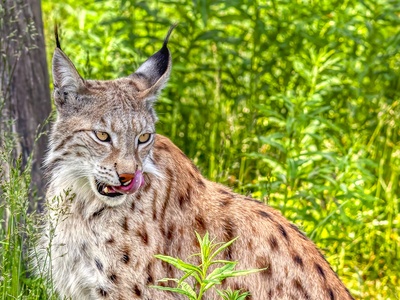
Eurasian Lynx
Medium-sized forest felid of boreal and temperate woods, preying on deer and small mammals. Adults weigh about 18 kg. Solitary ambush predator with tufted ears; populations recover in some areas due to protections.
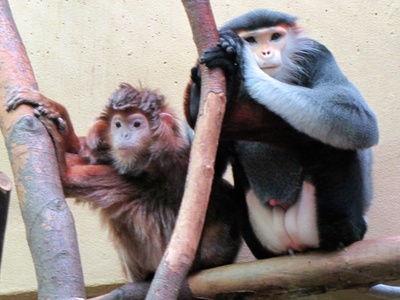
Red-shanked Douc
Colorful arboreal leaf-and-fruit-eating monkey of Southeast Asian rainforests. Adults weigh about 9 kg. Lives in large social groups and leaping canopy; critically endangered from hunting, trade, and ongoing habitat loss.
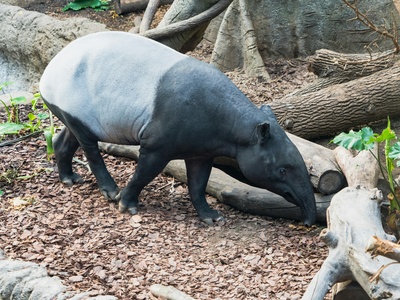
Malayan Tapir
Large browsing mammal of Southeast Asian rainforests, feeding on leaves, fruits, and aquatic plants. Adults weigh about 250 kg. Nocturnal and solitary, crucial seed dispersers; threatened by deforestation and roadkill.
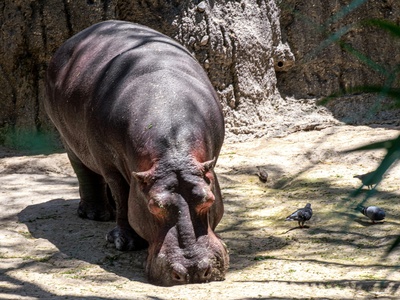
Pygmy Hippopotamus
Smaller, secretive hippo of swampy West African forests, feeding on foliage, fruits, and ferns. Adults weigh about 180 kg. Nocturnal and solitary, dependent on riverine forests; endangered due to habitat loss and hunting.
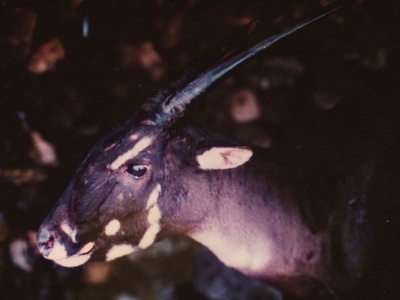
Saola
Rare forest-dwelling bovine of Annamite montane forests, browsing on leaves and shoots. Adults weigh about 100 kg. Extremely elusive and critically endangered, known from few populations threatened by hunting and habitat loss.
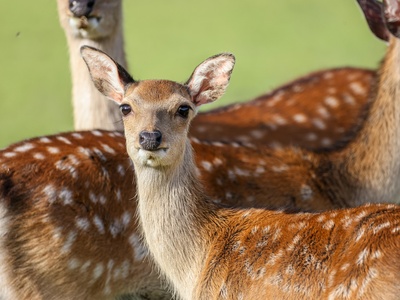
Sika Deer
Medium-sized deer of temperate and subtropical forests, feeding on grasses, leaves, and shrubs. Adults weigh about 70 kg. Adaptable browsers sometimes live near humans; conservation statuses vary by subspecies and region.
